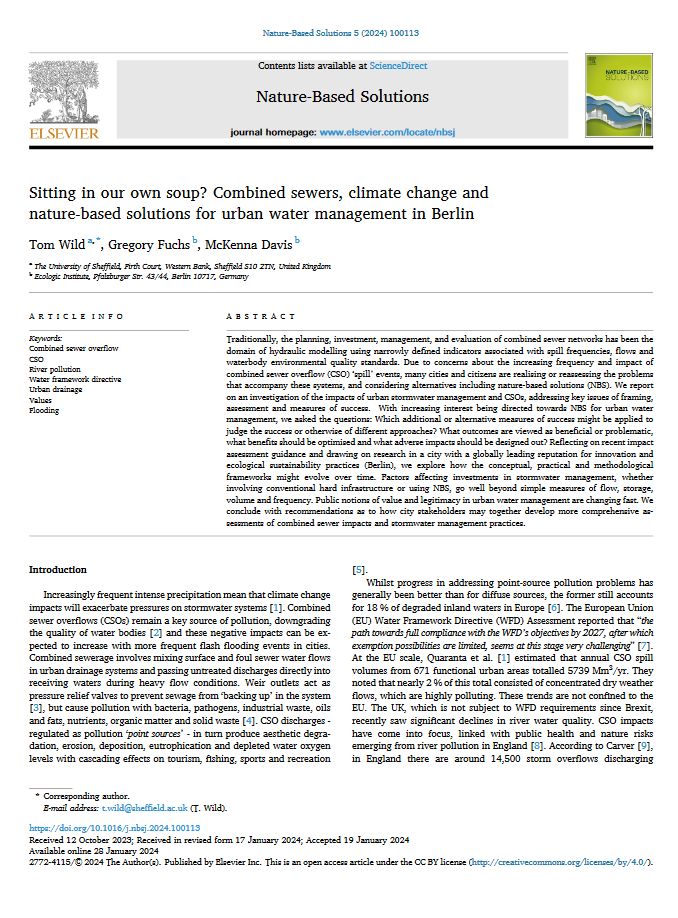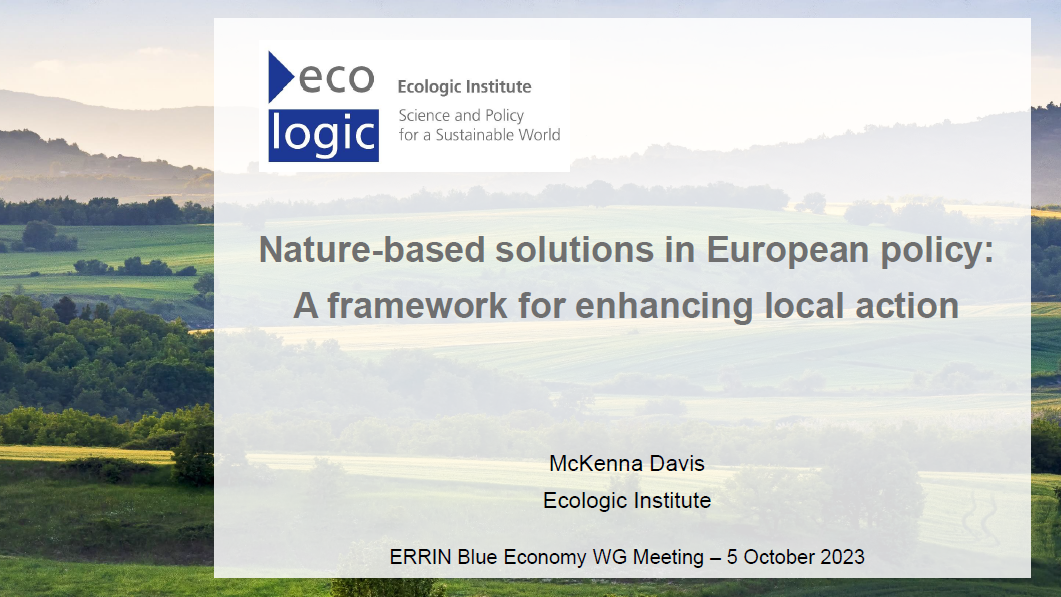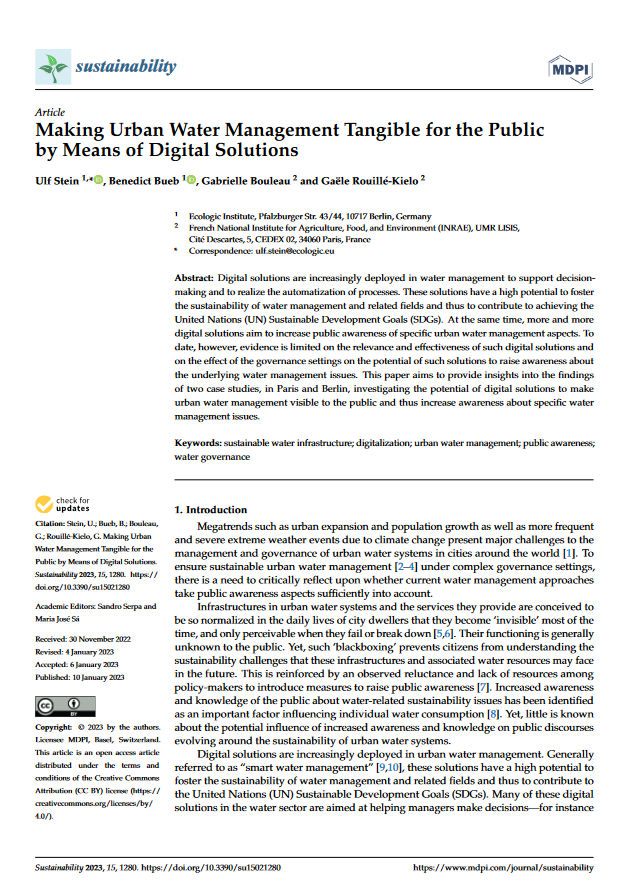Transitioning to Sustainable Urban Water Systems
Insights from Barcelona, Berlin, and Rotterdam
- Publication
- Citation
Kupilas, Benjamin & David Alejandro Camacho Caballero 2025: Transitioning to Sustainable Urban Water Systems: Insights from Barcelona, Berlin, and Rotterdam (Policy Brief, NICHES Project). Ecologic Institute and Autonomous University of Barcelona.
In this Policy Brief of the EU-funded NICHES project, Benjamin Kupilas (Ecologic Institute) and David Alejandro Camacho Caballero (UAB) examine how cities like Barcelona, Berlin, and Rotterdam can shape the transition to sustainable urban water systems through Nature-based Solutions (NBS). The core question is which governance models, participatory processes, and methodological approaches are needed to embed NBS effectively into urban storm- and wastewater management strategies. The Ecologic Institute led the systemic assessments and co-creation workshops that informed the development of city-specific transition-pathway recommendations.
Key Messages and Urgent Need for Action
Nature-based Solutions offer multifunctional alternatives to conventional grey infrastructure by fusing ecological resilience, social equity, and technical adaptability. Yet fragmented governance, insufficient funding, and limited stakeholder engagement continue to impede implementation.
Challenges Facing Urban Water Systems
Rapid urbanization subjects cities to combined sewer overflow (CSO) events, intense rainfall, and prolonged droughts. Legacy grey infrastructure alone cannot meet these complex demands. Fragmented responsibilities and aging assets undermine system adaptability and exacerbate ecological degradation.
Methodology: SETS and Three Horizons Framework
Within NICHES, participatory co-creation workshops and systemic assessments in Barcelona, Berlin, and Rotterdam applied a Socio-Ecological-Technical Systems (SETS) approach alongside the Three Horizons framework. SETS maps interactions among social, ecological, and technical components; Three Horizons structures short-term practices (Horizon 1), emerging innovations (Horizon 2), and long-term visions (Horizon 3), yielding tailored transition-pathway scenarios.
Transition Pathways: Lessons from Three Cities
- Barcelona: Horizon 1 reveals institutional silos and high sealing rates; Horizons 2–3 leverage digital tools and participatory governance to harmonize technical standards.
- Berlin: Fragmented mandates hinder integrated planning; future digital monitoring platforms and decentralized NBS pilots promise stronger system coherence.
- Rotterdam: Outdated infrastructure limits resilience; regulatory reforms, stormwater taxation, and collaborative learning platforms enhance citizen engagement and ecological integration.
Policy Implications and Recommendations
The co-created transition pathways underscore the need to:
- Integrate Institutions: Align water, climate, land-use, and biodiversity policies.
- Standardize Co-Creation: Embed participatory planning via councils, budgeting mechanisms, and digital platforms.
- Foster Innovation: Establish dedicated NBS pilot funds, fiscal incentives, and clear technical standards.
- Prioritize Ecological Restoration: Emphasize de-sealing, connectivity, and multifunctionality of green spaces.
- Deploy Digital Monitoring: Expand smart infrastructure for adaptive, real-time stormwater management.
With these integrative measures, municipalities can advance the transition toward resilient, equitable, and ecologically rich urban water systems.








